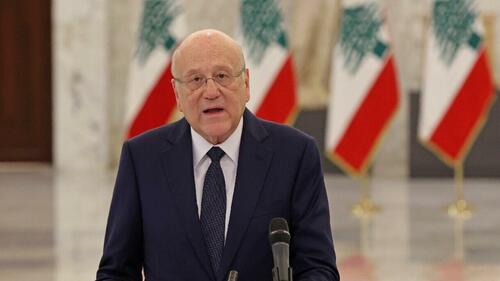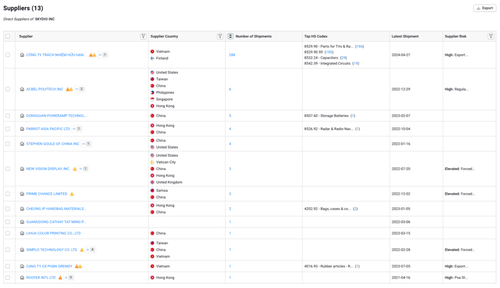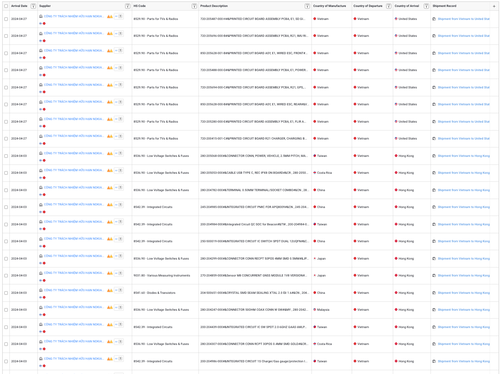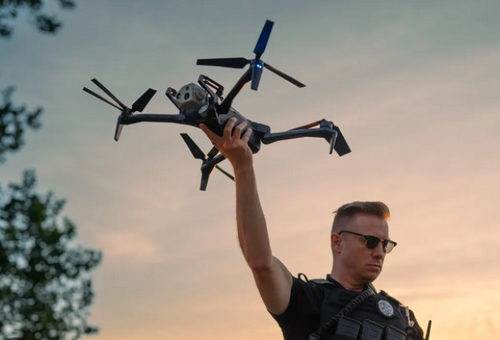Authored by Susan Crabtree via RealClearPolitics,
Secret Service leaders meddled in an independent government investigation of the July 13 assassination attempt against former President Donald Trump and are still not following many basic agency security protocols for presidential candidates, presidents, and vice presidents in the final days before the election, according to emails reviewed by RealClearPolitics and several sources in the Secret Service community.
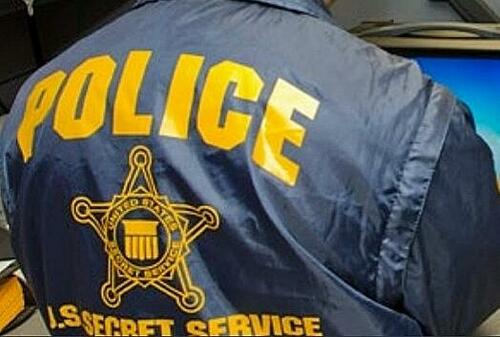
As Secret Service failures came to light in the weeks after the July assassination attempt, USSS managers sent emails to employees asking them to alert them to any “direct requests for information or interview” from the Department of Homeland Security Office of Inspector General, or DHS OIG. The internal government watchdog is conducting its probe of the failures that led to the near assassination of Trump, the killing of fireman Corey Comperatore, and the wounding of two other rally-goers at the western Pennsylvania campaign event.
The emails, which RealClearPolitics reviewed, contained the subject line “DHS OIG Inquiries” and directed employees to tell their supervisors if an OIG official reaches out to them so Secret Service managers could coordinate “an organized response.” Supervisors sent the email five days after the same inspector general issued a negative report on the Secret Service’s actions before and on Jan. 6, criticizing the agency for failing to detect a pipe bomb near Vice President Kamala Harris and not flagging signs of potential violence to other agencies.
Normally, responding to DHS OIG investigators without talking to superiors would not warrant coordination with supervisors, the email stated. But after the first assassination attempt against Trump, USSS leadership needed to provide the proper context and a coordinated response.
“Generally, not an issue; however, this is NOT the normal course of action, and the Service needs awareness and to ensure an organized response with information in the correct context,” Secret Service supervisors wrote in the emails, noting that “only we know what we do.”
The email is now under Senate scrutiny. Sen. Chuck Grassley, a longtime champion of government whistleblowers, on Wednesday sent a letter to Acting Secret Service Director Ronald Rowe expressing concern that the email and any other communications like it could have “a chilling effect” on employee disclosures to the inspector general’s office, as well as on congressional investigations.
“If this email is an accurate representation of the actions taken by Secret Service management, it could have a chilling effect on its employees from fully cooperating and providing information to the DHS OIG as well as congressional investigations out of fear of retaliation since supervisors will apparently be keeping tabs on their communications,” Grassley wrote in the letter, a copy of which his office provided to RCP.
Instead of trying to control the flow and context of information, Secret Service leaders should be “encouraging” employees to “come forward to provide truthful information to the DHS OIG and Congress so that lessons can be learned to prevent future assassination attempts,” Grassley added.
The Iowa Republican set a deadline of Nov. 13 for Rowe to hand over all records “between and among Secret Service personnel” related to providing information to the DHS OIG and congressional investigations into the July 13 attempted assassination.
Tristan Leavitt, an attorney and president of Empower Oversight, which represents Secret Service, IRS, and other government whistleblowers, said the email demanding that potential whistleblowers coordinate communications with their bosses stifles the free flow of information, which could help improve the agency’s performance and which federal law protects.
“Secret Service employees have every right to anonymously contact the DHS OIG without informing their supervisor,” Leavitt said. “While this email is purportedly aimed at employees contacted directly by the OIG, it will undoubtedly discourage employees who may have information about wrongdoing from contacting the OIG or Congress.”
The Secret Service acknowledged receipt of Grassley’s letter but declined to respond to RCP’s questions about how many supervisors sent the email and whether there were other attempts to pressure employees from independently discussing problems they’ve experienced in the Secret Service with DHS OIG or congressional investigators.
“The U.S. Secret Service is in receipt of the letter sent by Senator Grassley,” an agency spokesman said in a statement. “The Secret Service has been and will continue to examine the events of the July 13 assassination attempt and will fully cooperate with Congress and other relevant investigations. We respect the Senator’s role of oversight within the Senate Judiciary Committee and will respond through official channels.”
In the hectic waning hours before Election Day, Secret Service agents are also complaining about security shortcuts that agency leaders are allowing, sometimes requiring, to handle last-minute venue changes and adjustments to Trump’s and Vice President Kamala Harris’s break-neck campaign schedule.
The Secret Service still has not provided Trump’s campaign with a military aircraft three weeks after it was requested, even though President Biden said earlier this month that he had authorized the Department of Homeland Security to “give him every single thing he needs.”
Sources in the Secret Service community tell RCP that Trump’s campaign staff have made significant changes to his schedule less than 12 hours before arrivals, hamstringing the advance team’s ability to plan, coordinate, and obtain manpower and resources properly. The last-minute changes, which are typical in the final weeks of a presidential campaign, have posed significant challenges to providing security for Trump, who is still facing known threats from foreign and domestic actors.
After a second attempt on Trump’s life, the Secret Service started using ballistic glass to provide extra security for the Republican presidential nominee at outdoor and other venues. But at times, late schedule changes have prevented the glass from being in place when it should have been and has led to a shortage of security manpower, these sources assert.
Secret Service agents also complain that the agency’s managers devoted to Harris’ security have instructed advance personnel to submit manpower and resource requests without knowing any of the sites in Harris’ schedule. They also complain that Harris’ staff are “disorganized” in determining sites and are dictating what resources the vice president should have against the Secret Service advance team’s strong recommendations without any pushback from agency leaders.
“This is not new, just a continuation of poor USSS leadership,” a source tells RCP. “It puts the entire Secret Service into a cross-your-fingers-and-hope-nothing-happens situation. Sound familiar?”
The Secret Service also has come up short in securing Harris’ communications with her advance team, so they don’t share vital movements and logistics with the public or unwanted parties, according to several sources. The White House Communications Agency provides secure communications services for only the president and vice president but does not extend those to Trump because of a lack of resources.
However, even Harris’ campaign staff and her Secret Service advance teams have been using unauthorized communications because of a dearth of WHCA manpower and resources coupled with last-minute changes to the vice president’s campaign schedule, the sources contend.
Secret Service sources argue that the security procedures have not only failed to improve since July 13 but have further deteriorated.
The USSS workforce is “aggressively communicating” to their supervisors that they are providing inadequate security that fails to meet agency standards, while the agency’s leaders, ensconced in their Washington offices, are assuring everyone that “they’ll be fine and to keep up the good work,” one source argues.
“It’s those on the front lines, who do the long hours and impossible tasks, who get thrown under the bus when everything does go wrong while leaders simply retire and move on,” the source told RCP. “No accountability.”
The agency did not respond to questions about these alleged deviations from agency security protocols.
